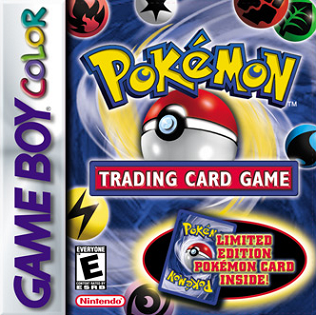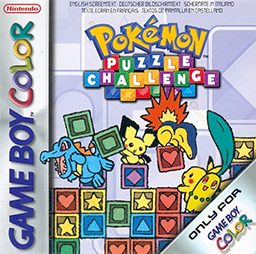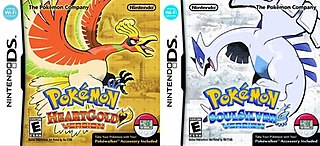
The Game Boy Advance (GBA) is a 32-bit handheld game console developed, manufactured and marketed by Nintendo as the successor to the Game Boy Color. It was released in Japan on March 21, 2001, in North America on June 11, 2001, in the PAL region on June 22, 2001, and in mainland China as iQue Game Boy Advance on June 8, 2004. The GBA is part of the sixth generation of video game consoles. The original model was followed in 2003 by the Game Boy Advance SP, a redesigned model with a frontlit screen and clamshell form factor. A newer revision of the SP with a backlit screen was released in 2005. A miniaturized redesign, the Game Boy Micro, was released in September 2005.
Netscape Communications Corporation was an American independent computer services company with headquarters in Mountain View, California, and then Dulles, Virginia. Its Netscape web browser was once dominant but lost to Internet Explorer and other competitors in the so-called first browser war, with its market share falling from more than 90 percent in the mid-1990s to less than one percent in 2006. An early Netscape employee Brendan Eich created the JavaScript programming language, the most widely used language for client-side scripting of web pages and a founding engineer of Netscape Lou Montulli created HTTP cookies. The company also developed SSL which was used for securing online communications before its successor TLS took over.

The 64DD is a magnetic floppy disk drive peripheral for the Nintendo 64 game console developed by Nintendo. It was announced in 1995, prior to the Nintendo 64's 1996 launch, and after numerous delays was released in Japan on December 13, 1999. The "64" references both the Nintendo 64 console and the 64MB storage capacity of the disks, and "DD" is short for "disk drive" or "dynamic drive".
Pokémon Red Version and Pokémon Blue Version are 1996 role-playing video games developed by Game Freak and published by Nintendo for the Game Boy. They are the first installments of the Pokémon video game series. They were first released in Japan in 1996 as Pocket Monsters Red and Pocket Monsters Green, with the special edition Pocket Monsters Blue being released in Japan later that same year. The games were later released as Pokémon Red and Pokémon Blue in North America and Australia in 1998 and Europe in 1999. Pokémon Red and Pokémon Blue combined Red/Green/Blue for release outside of Japan.

Pokémon Stadium, known in Japan as Pokémon Stadium 2, is a strategy video game developed and published by Nintendo for the Nintendo 64. First released in Japan on April 30, 1999, it was later released as the first Stadium title in Western regions the following year, and is a sequel to the Japanese-only 1998 Nintendo 64 release Pocket Monsters’ Stadium. The gameplay revolves around a 3D turn-based battling system using the 151 Pokémon from the Game Boy games Pokémon Red, Pokémon Blue, and Pokémon Yellow.

Pokémon Trading Card Game is a video game adaptation of the Pokémon tabletop card game for the Game Boy Color. Developed by Hudson Soft and Creatures, and published by Nintendo, it was initially released in Japan in 1998, and in the West in 2000. The game includes the first three sets of the trading card game, as well as exclusive cards not available elsewhere. The game was rereleased as part of the Nintendo Switch Online service on August 8, 2023.
Pokémon Gold Version and Pokémon Silver Version are 1999 role-playing video games developed by Game Freak and published by Nintendo for the Game Boy Color. They are the first installments in the second generation of the Pokémon video game series. They were released in Japan in 1999, Australia and North America in 2000, and Europe in 2001. Pokémon Crystal, a third version, was released a year later in each region. In 2009, on the 10th anniversary of Gold and Silver, remakes titled Pokémon HeartGold and SoulSilver were released for the Nintendo DS.

Pokémon Puzzle Challenge is a puzzle video game developed by Intelligent Systems and published by Nintendo for the Game Boy Color. Released in Japan on September 21, 2000; in North America on December 4, 2000; and in PAL regions on June 15, 2001, it is the second Pokémon-themed entry in the Puzzle League series. While its Nintendo 64 counterpart Pokémon Puzzle League is visually based on the Pokemon anime, Puzzle Challenge instead draws inspiration from the Pokémon Gold and Silver games. The game features multiple modes of play and support for competitive play between two players. Puzzle Challenge was later digitally re-released via the Nintendo 3DS's Virtual Console line on November 6, 2014.
Nintendo Space World, formerly named Shoshinkai and Famicom Space World, was an annual video game trade show hosted by Nintendo from 1989 to 2001. Its three days of high-energy party atmosphere was the primary venue for Nintendo and its licensees to announce and demonstrate new consoles, accessories, and games. Anticipated and dissected each year with hype and exclusivity, it was a destination for the international video game press, with detailed developer interviews and technology demos.

Pokémon is a series of video games developed by Game Freak and published by Nintendo and The Pokémon Company under the Pokémon media franchise. It was created by Satoshi Tajiri with assistance from Ken Sugimori, the first games, Pocket Monsters Red and Green, were released in 1996 in Japan for the Game Boy, later released outside of Japan as Pokémon Red Version and Blue Version. The main series of role-playing video games (RPGs), referred as the "core series" by their developers, has continued on each generation of Nintendo's handhelds. The most recently released core series games, Pokémon Scarlet and Violet, were released on November 18, 2022, for the Nintendo Switch.

Microsoft Internet Explorer 5 (IE5) is the fifth, and by now, discontinued, version of the Internet Explorer graphical web browser, the successor to Internet Explorer 4 and one of the main participants of the first browser war. Its distribution methods and Windows integration were involved in the United States v. Microsoft Corp. case. Launched on March 18, 1999, it was the default browser in Windows 98 Second Edition, Windows 2000 and Windows ME and can replace previous versions of Internet Explorer on Windows 3.1x, Windows NT 3.51, Windows 95, Windows NT 4.0 and the original release of Windows 98. Although Internet Explorer 5 ran only on Windows, its siblings Internet Explorer for Mac 5 and Internet Explorer for UNIX 5 supported Mac OS X, Solaris and HP-UX.

Microsoft Internet Explorer 4 (IE4) is the fourth, and by now, discontinued, version of the Internet Explorer graphical web browser that Microsoft unveiled in Spring of 1997, and released on September 22, 1997, primarily for Microsoft Windows, but also with versions available for the classic Mac OS, Solaris, and HP-UX and marketed as "The Web the Way You Want It".

Microsoft Internet Explorer 3 (IE3) is the third, and by now, discontinued, version of the Internet Explorer graphical web browser which was announced in March 1996, and was released on August 13, 1996 by Microsoft for Microsoft Windows and on January 8, 1997 for Apple Mac OS. It began serious competition against Netscape Navigator in the first Browser war. It was Microsoft's first browser release with a major internal development component. It was the first more widely used version of Internet Explorer, although it did not surpass Netscape or become the browser with the most market share. During its tenure, IE market share went from roughly 3–9% in early 1996 to 20–30% by the end of 1997. In September 1997 it was superseded by Microsoft Internet Explorer 4.

Pokémon HeartGold Version and Pokémon SoulSilver Version are 2009 remakes of the 1999 Game Boy Color role-playing video games Pokémon Gold and Silver, also including features from Pokémon Crystal. The games are part of the fourth generation of the Pokémon video game series, developed by Game Freak and published by The Pokémon Company and Nintendo for the Nintendo DS. In commemoration of the 10th anniversary of Gold and Silver, the games were released in Japan on September 12, 2009, and were later released in other regions during March 2010.

Charizard, known in Japan as Lizardon, is a Pokémon in Nintendo and Game Freak's Pokémon franchise. Created by Atsuko Nishida, Charizard first appeared in the video games Pokémon Red and Blue and subsequent sequels. They have later appeared in various merchandise, spinoff titles and animated and printed adaptations of the franchise. It is known as the Flame Pokémon. Shin-ichiro Miki, the actor who voices James in the original Japanese version of the Pokémon anime, voices Charizard in both the Japanese and English-language versions of the anime. An orange, draconic Pokémon, Charizard is the evolved form of Charmeleon and the final evolution of Charmander. It also has two Mega Evolved forms, Mega Charizard X and Y, that were likely both designed by Tomohiro Kitakaze, the designer of Mega Charizard X, and are not permanent and always revert to the normal Charizard form once a battle is complete. It also has a Gigantamax form in Pokémon Sword and Shield, which changes its appearance and size for 3 turns, until it is knocked out, until it is returned, or until the battle ends.
Unown is a Pokémon species in Nintendo and Game Freak's Pokémon franchise. Created by Ken Sugimori, Unown first appeared in the video games Pokémon Gold and Silver and most of its subsequent sequels. It has also appeared in various merchandise, spin off titles, and animated and printed adaptations of the franchise.
Online console gaming involves connecting a console to a network over the Internet for services. Through this connection, it provides users the ability to play games with other users online, in addition to other online services.

MSN Dial-up is an Internet service provider operated by Microsoft in the United States and formerly also in several other countries. Originally named The Microsoft Network, it debuted as a proprietary online service on August 24, 1995, to coincide with the release of Windows 95. In 1996 and 1997, a revised web-based version of the ISP was an early experiment at interactive multimedia content on the Internet.












